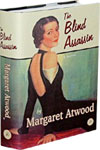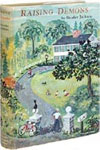[Arabic title: Kit?b Ta?r?r U??l li-?ql?dis min ta'l?f khwajah Na??r al-D?n al-??s?]. Euclidis Elementorum geometricorum libri tredecim ex traditione doctissimi Nasiridini Tusini nunc primum Arabicè impressi
EUCLID
From
SOPHIA RARE BOOKS, Koebenhavn V, Denmark
Seller rating 5 out of 5 stars
![]()
AbeBooks Seller since 18 January 2013
About this Item
Description:
THE FIRST EDITION OF EUCLID IN ARABIC A TSAR OF RUSSIA S COPY. First edition of Euclid in Arabic, "possibly the most remarkable of all printed editions of Euclid" (Thomas-Stanford). Euclid s Elements, the "oldest mathematical textbook still in common use today" (PMM), "has exercised an influence upon the human mind greater than that of any other work except the Bible" (DSB). It is the only work of classical antiquity to have remained continuously in print, and to be used continuously as a textbook from the pre-Christian era to the 20th century. It is the foundation work not only for geometry but also for number theory. Euclid was first re-introduced to medieval Europe through Adelard of Bath s Latin translation of an Arabic manuscript of the Elements a testament to the enduring importance of intellectual exchange between Europe and the Islamic world. This first printed Arabic edition (the only Arabic edition printed in Europe until the 19th century) is a ta?r?r of the Elements not a translation but a redaction, a re-working of older Arabic translations, with additions and commentary. The most significant of the additions is an attempted proof of the parallel postulate (pp. 28-33) that through any point not on a given straight line passes a unique line that does not intersect the given line. This attempted proof exerted a considerable influence on the historical development of non-Euclidean geometry. A Latin translation of it was published by the great Oxford mathematician John Wallis in his Opera mathematica (1693) (based upon a lecture he had delivered 30 years earlier), and this in turn "became the starting point for the work of Saccheri and ultimately for the discovery of non-Euclidean geometry" (Katz, p. 271). This redaction of the Elements has traditionally been ascribed to the great Persian polymath Na??r al-D?n al-??s? (1201-74) (and is so ascribed on the title page), but this is no longer accepted by scholars. The actual author, usually designated Pseudo-??s? , is unknown, although some believe it may have been al-??s? s son, Sadr al-Din. This beautiful edition of the Elements was printed at the press established by Ferdinando de Medici under Pope Gregory XIII to disseminate works in oriental languages. Some copies (including the present one) contain the first 12 books of the Elements, others also contain the 13th book. The reason for the omission of the 13th book in some copies is unknown, but copies of the shorter version are held in many great libraries (Oxford, Christ Church and Trinity; one, if not more, of the copies in Cambridge University Library, plus other Cambridge copies (see Adams); Göttingen; Munich; the Vitry copy in a contemporary German binding (Sotheby s 10-11 April 2002, lot 352); and others). In addition, while in the present copy the title page is partly in Arabic and partly in Latin, some copies have a title page entirely in Arabic (and the title verso is also reset see Thomas Stanford). Provenance: Tsar of Russia (ink stamps on title). Adam Litawor Chreptowicz (1768-1844), philanthropist and patron of science, Knight of Malta, Knight of Honor and Devotion of the Grand Catholic Priory in Russia (inscription at foot of title page, marginal annotations). He augmented the library of the Counts of Chreptowicz in Szczorsy (now in Belarus) which contained more than 10,000 volumes. The library was founded by his father Joachim Litawor Chreptowicz (1729-1812), Polish-Lithuanian nobleman, writer, poet, politician of the Grand Duchy of Lithuania, marshal of the Lithuanian Tribunal, and the last Grand Chancellor of Lithuania. Born ca. 300 BC in Alexandria, Egypt, "Euclid compiled his Elements from a number of works of earlier men. Among these are Hippocrates of Chios (flourished c. 440 BC), not to be confused with the physician Hippocrates of Cos (c. 460 375 BC). The latest compiler before Euclid was Theudius, whose textbook was used in the Academy and was probably the one used by Aristotle (38. Seller Inventory # 6098
Bibliographic Details
Title: [Arabic title: Kit?b Ta?r?r U??l li-?ql?dis ...
Publisher: in Typographia Medicea, Rome
Publication Date: 1594
Edition: First edition.
AbeBooks offers millions of new, used, rare and out-of-print books, as well as cheap textbooks from thousands of booksellers around the world. Shopping on AbeBooks is easy, safe and 100% secure - search for your book, purchase a copy via our secure checkout and the bookseller ships it straight to you.
Search thousands of booksellers selling millions of new & used books
New & Used Books
New and used copies of new releases, best sellers and award winners. Save money with our huge selection.
Rare & Out of Print Books
From scarce first editions to sought-after signatures, find an array of rare, valuable and highly collectible books.







